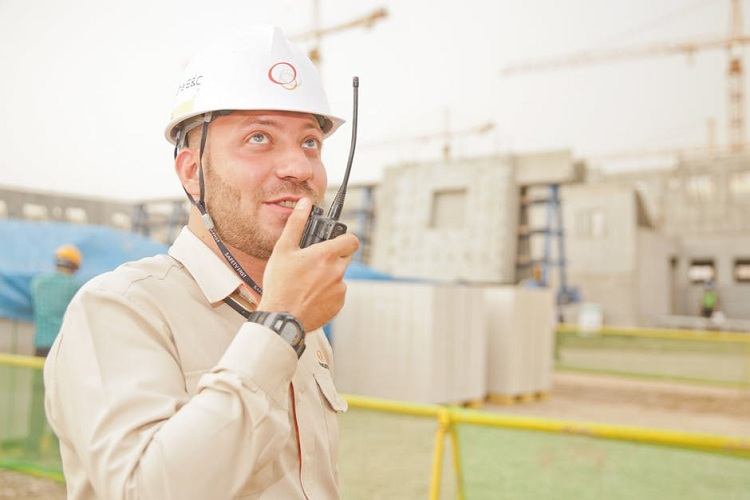As one of the oldest branches of engineering, working as a civil engineer is a highly sought-after profession.
It’s also one of the most important. Without civil engineers, we wouldn’t have the roads, buildings, and bridges that have helped us form communities and advance civilizations.
But, to ensure success in such an important role, there are many civil engineering skills that are essential for your civil engineer resume.
If you’re an aspiring civil engineer, here are some of the key skills you’ll need to set you apart from the competition.
1. Technical Skills
Vital technical skills for engineers include a thorough understanding of the principles of mathematics, science, and computer science.
With an affinity for these subjects, including geometry, trigonometry, physics, and chemistry, you’ll be able to identify and solve problems and avoid the possibility of mistakes.
And, you’ll need a good understanding of design techniques and their interpretation too. This includes working with models, blueprints, maps, and drawings to help plan and install complex structures.
Civil engineers are also often required to develop grading plans for land grading and excavation, which you can find more information about here. These plans call for a thorough knowledge of civil engineering techniques as well as federal and state laws.
2. Analytical Thinking
Another of the key skills for civil engineer roles is an inquisitive and analytical mind, with a natural ability to approach and solve complex problems.
This also involves the practice of assessing the pros and cons of all possible solutions. And, you’ll also need to be decisive about choosing the best approach to any given situation through systematic evaluation.
3. Creativity
Broadly speaking, the role of a civil engineer is to apply engineering principles as a means to develop the built environment.
As such, technical and analytical skills are only part of the equation. You’ll also need to think in a creative and unique way to devise and carry out innovative solutions to constantly-evolving situations and problems. Whether that means finding new ways to reduce emissions, or building a rotating boatlift, creativity is imperative.
4. Project Management
As the role of a civil engineer is so vital to most projects, your team will often to look to you for guidance. It’s crucial that you’re able to step up and manage every project and the people responsible for it towards a timely and cost-effective solution.
And, you’ll be responsible for overseeing the work of others. This means being able to assess their input, while also ensuring their contributions meet the standards set out in the relevant laws and regulations.
5. Communication
The ability to communicate could be seen as a general skill rather than a specific civil engineering skill. But in civil engineering, and possibly more than in other engineering roles, excellent communication skills are paramount.
Civil engineers have to interact with a diverse range of people, including architects, construction managers, stakeholders, and investors.
They need to be able to express in clear and concise terms any issues, ideas, and suggestions. And, good communication skills also means being able to listen to the concerns and ideas of other team members.
6. Organizational Skills
Due to the way they work with diverse teams, and often on several complex projects at once, civil engineers have to be organized.
Licensed civil engineers are also the only ones who can sign design documents for infrastructure projects. Because of this, they are often responsible for the allocation of resources, time management, and making sure that workers adhere to these documents.
7. Leadership
As well as guiding projects to finalization, civil engineers must lead their team by example. Because of the importance of their role, they are ultimately responsible for the work of everyone involved in the project. They also have to maintain the trust of planning officials as well as following time and budget specifications.
As such, civil engineers need to be able to plan and prioritize, delegate, make decisions, and motivate team members towards a common goal.
8. Ability to Negotiate
An ability to negotiate isn’t something you can study for, but it’s one of the skills needed for engineering that you’ll acquire through experience.
With so many diverse team members involved in every project, there’s a lot of potential for a difference of opinion. Civil engineers often need to bring various parties together to diffuse conflict and reconcile differences. Good negotiation skills will also come into play when it comes to reducing construction costs when dealing with suppliers.
9. Attention to Detail
There is zero room for mistakes when it comes to civil engineering.
Every calculation must be precise beyond measure for optimal safety on every single infrastructure project. This makes acute and unwavering attention to detail one of the most crucial skills a civil engineer can possess.
10. Problem Solving
There are often surprises and unforeseen issues on the path to completion of any construction project. This is where you must harness your education, skills, and experience to find the best solution to any given problem.
Whether it’s negotiating project details, overcoming delivery delays, or managing budget constraints, civil engineers have to be adept at solving problems at every step of the way.
11. Passion for Learning
One of the most underrated skills a civil engineer needs is a passion for learning.
Even the most experienced and talented civil engineers must seek out new ways to expand their knowledge and develop their skills as they progress in their career. By doing the same you’ll always be at the cutting edge of new methods, solutions, materials, and technology in the industry.
The Civil Engineering Skills You Need to Succeed
From technical knowledge to creativity, as well as soft skills like communication and management, the key civil engineering skills you need to succeed are vast and varied.
But, it’s this unique combination of skills that makes civil engineering such an important and sought-after profession.
For more career advice and inspiration, be sure to check out our other blog posts!










